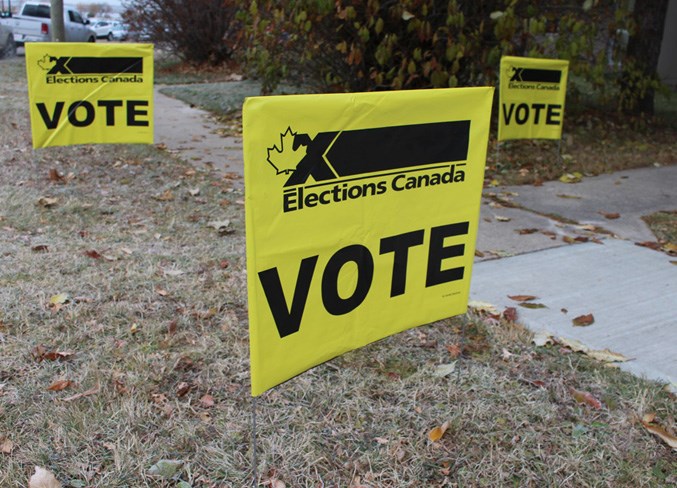Both the Lakeland and Fort McMurray-Cold Lake ridings saw more electors heading to the polls for the 2019 federal election.
Overall, an estimated 57,578 out of 78,525 eligible electors in the Lakeland riding, or 73 per cent, participated. That was an increase from the 68 per cent, or 54,934 out of a possible 79,721 voters, seen in 2015.
Conservative candidate Shannon Stubbs received just under 84 per cent (48,314) of votes cast in the Lakeland riding to be re-elected as Lakeland MP.
NDP candidate Jeffrey Swanson followed with 3,728 votes, 2,565 went to Liberal Mark Watson, People’s Party of Canada candidate Alain Houle had 1,468, Green Party’s Kira Brunner finished with 1,105, 251 went to Robert McFadzean of the Libertarian Party, and Roberta Graham of the Veteran’s Coalition Party received 147 votes.
There was also a five per cent increase in voter turnout for the Fort McMurray-Cold Lake riding. Out of 78,157 electors, 51,234 cast their ballots, which equalled 65 per cent of eligible voters. In 2015, 47,424 out of the 77,960, or 60 per cent, took to the polls.
Conservative candidate David Yurdiga was re-elected with 40,706 votes. Maggie Farrington of the Liberal party received 4,848, NDP Matthew Gilks had 2,883, People’s Party of Canada candidate Matthew Barrett finished with 1,674, and 865 votes went to Green Party’s Brian Deheer.
According to Elections Canada, the unofficial results saw 66.9 per cent of eligible voters across the country casting their ballots on Monday, Oct. 21, a 2.35 per cent decrease from the previous federal election that had 68.3 per cent. The 2019 count doesn’t include those that registered on election day.
Matthew McKenna, media relations advisor with Elections Canada, noted that there was actually an increase in the number of Canadians who filled out a ballot.
“It’s simply because there are more electors in Canada who could have gone out to vote,” he explained. “The number of voters went up, and because voter turnout is a function of votes over turnout, there were more people who voted, but turnout went down slightly.”
Although the percentage of voters saw an overall decrease, McKenna said it’s still encouraging that people participated in the election.
“It’s great to see the turnout being up, because it means more people were able to vote and people who wanted to vote were able to do so,” he expressed.
Preliminary numbers show that 17.89-million Canadians cast their ballots on Oct. 21.
The number of electors who took advantage of the advanced polls also increased from the last federal election. Elections Canada estimated roughly 4.70-million people hit the polls early, roughly 1.04-million more than the 3.65-million in 2015.
Using advanced polls has become an increasingly popular option for Canadians, McKenna said.
“One thing that was different this year that wasn’t the case in 2015 were longer hours. In 2015, advanced polls were opened over four days between 12 p.m. and 8 p.m., but in 2019, advanced polls were open over four days for the full 12 hours, which is how long the election day polls are opened,” he detailed. “That may have had an impact, a few more hours in the day for people to get out and vote in advance.”
With roughly 5.91-million votes, the Liberal Party of Canada hold a minority government and party leader Justin Trudeau was re-elected as prime minister. The official opposition is the Conservatives, who received 6.15-million, the NDP had 2.84-million, followed by the Bloc Québecois with 1.37-million.
The Liberals hold 157 seats, while the Conservatives have 121 and the Bloc Québecois received 32. The NDP came in with 24, and four seats fell under the other category.



